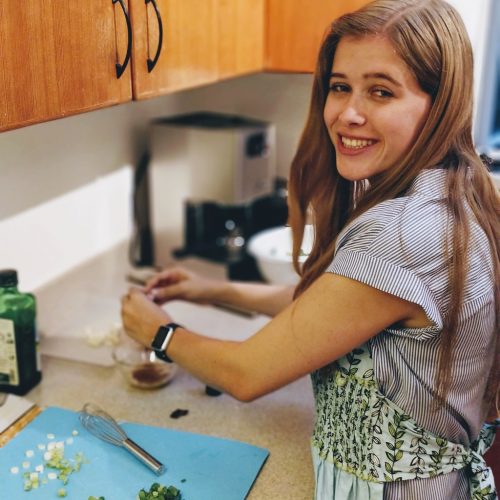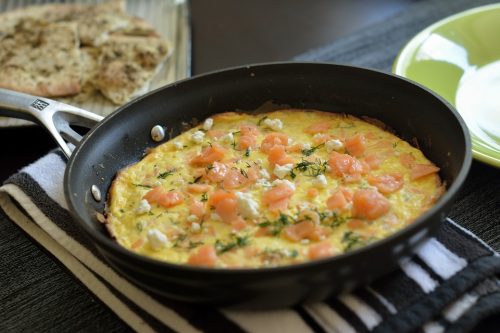What is culinary therapy?
Here’s the quick answer: culinary art therapy is a way to use food to address a person’s mental health conditions. It’s a form of art therapy — no cooking experience required.

Culinary therapy has been the best thing that has ever happened to me. I thought of seeing a culinary therapist after a psychologist diagnosed me with mild depression. Taking antidepressants was out of the equation since I refused to even take medicine to treat flu or fever. Allow me to share my positive experience with using cooking therapy to solve familial relationship problems.
Therapy, in general, was new to me, especially using culinary arts as a tool. How is cooking related to mental health treatment? Is culinary therapy an enjoyable practice?
Culinary As Therapy
Therapy – Culinary
This is a story of my journey through therapy using the culinary arts – how culinary therapy helped alleviate my depression that somehow leads to stress eating disorders, what mindfulness programs were offered in the cooking center, and how this type of therapy became one of my favorite pastimes to improve mental health. But first, a quick description of art therapy: art therapy is a therapy technique that uses arts of any kind to help a person with mental health conditions.
For example, when I serve salad or other dishes to my friends, I’m putting my mental health at a better state. I eliminate the risk of a mental breakdown or relapse. I feel good and functional. A high-quality diet plays a big role in your mental health, as well as a good cooking process. After a session, eat a good meal afterward to keep your brain healthy.
The Therapist
Armed only with my faith in my friend’s words, I went to set up a culinary therapy appointment with the recommended licensed mental health counselor. The woman I met looked like she was in her 50s. Being offered the choice to sit on the couch or the chair in front of her desk was already a massive plus for me. I thought, “Hmm, she’s nice.”
We exchanged pleasantries, and then the therapist allowed me to talk about how I felt during that individual session. Then, the first words that came out of her mouth afterward were, “Is there any activity that you hate doing because you find it tedious?” I didn’t know where the conversation was headed, but I replied, “Yes. Cooking.” And that’s where culinary therapy came into the discussion. Cooking somehow encourages me to have that secured self esteem, it focuses to address emotional feelings, and increases my sense of accomplishment.
The cooking therapist said, “Before I help you understand cooking therapy, I would love for you to start learning cooking arts first – particularly cooking first. Sometimes, it helps to make ourselves do things that we’re not used to. It can be a simple form of therapy.”
Then, the first words that came out of her mouth afterward were, “Is there any activity that you hate doing because you find it tedious?” I didn’t know where the conversation was headed, but I replied, “Yes. Cooking.”
Should I Cook Or Not?
I left the culinary therapist’s clinic with that question in mind about the culinary therapy. I still stand by my initial opinion of culinary therapy as a troublesome activity. I love to eat, but I don’t like cooking my food, or anything culinary. My reason is that I can always buy ready-made stuff or order something from my favorite restaurant so I got doubts about culinary therapy.
Nevertheless, since cooking therapy was a mental health professional’s suggestion, I gave cooking a shot. I found a simple recipe online for pasta that merely asked for a few prep ingredients that I already had at home. It tasted bland, but the therapeutic experience wasn’t too bad. I tried making an omelet for my man the next day, and he praised me for it. I was happy to inform my therapist. I never thought culinary therapy can make such a difference.
I love to eat, but I don’t like cooking my meal, or anything culinary. My reason is that I can always buy ready-made stuff or order something from my favorite restaurant so I got doubts about cooking therapy.
The more I engaged with the therapy, the more I managed to let go of my issues. When I went back to the therapist, she asked, “How are you?” I smiled and talked about how my life has changed since I started cooking. I gained self esteem. We still went through several cooking therapy session after that, but I knew that it would not have been possible if I didn’t listen to the therapist’s first individual’s personal recommendation, particularly this culinary art therapy.
According to the Chicago School, culinary therapy is a type of professional psychology similar to dance therapy and drama therapy. It uses the power of food and cooking to improve personal cultural and familial relationships with food, help people cope with psychological problems faced, and encourage mindful eating. It is based on the belief that the act of preparing at present moment and eating food can be fun and that the quality of our relationship with food reflects the quality of our lives.
Culinary therapy is a relatively new cultural field that uses the act of cooking mindfully and baking using the principles of gastronomy as a task or act to help persons heal moment-to-moment. The smell of cooked food has been shown to be beneficial for a wide range of issues, from improving moods and managing stress to helping people with chronic illnesses. The research of the Chicago School of Professional Psychology on culinary therapy is still in its early stages, but the potential mental, emotional, and physical benefits are already evident in using arts, cooking, gastronomy, and more to create a therapeutic technique.

Culinary Arts Therapy
With regards to treatment that is culinary-related, the thing I also find interesting is finding the best cookware for beginners. I have always been aware that there are different pots and pans for every dish, but I had no clue as to what to get for myself when I was starting out. I had no experience whatsoever in the culinary art. Arts? Cooking? Not my wheelhouse. In case you are in the same boat as I was, here are some tips for you as recommended by my therapist.

Commonly Used Culinary Ware In Culinary Therapy
Skillet
Skillets are lifesavers when you wish to fry an omelet or meat without the extra oil. My brand of choice for this is Cuisinart because most of their pans are non-stick and therefore let me eat healthily. The one I currently use is the 12-inch Open Skillet with Helper Handle.
Dutch Oven
The Dutch Oven is a particular favorite in the culinary world. In culinary programs, it is used by seasoned cooks.
Lodge L8DD3 Double Dutch Oven
The Lodge L8DD3 Double Dutch Oven brings a lot of convenience to me every single time that my entire family comes over, and I have to cook for no less than 15 adults. Its size is incredible, as this can hold a large ham or turkey. Since the cast iron allows heat to be distributed evenly, anything I prepare with this over a campfire, a stovetop, or an oven is cooked so well. This has made my culinary journey even more exciting, and I am so grateful for its healing effects.
Since cast iron allows heat to be distributed evenly, anything I prepare with this over a campfire, a stovetop, or an oven is cooked so well. This has made my culinary journey even more exciting…
Final Thoughts On Using Cooking As Treatment For Mental Health Problems
Cooking, in my opinion, is a valid form of treatment that not everyone talks about. Even so, it helps with emotional and psychological problems and can also utilize an individual’s personal, cultural, and social history to create a therapeutic experience. They can even share with their family — a meal is a universal language to people. You should try culinary therapy if you still haven’t. It is an effective method that may not be common but is definitely worth your free time and effort.
Culinary therapy is such an interesting tool for your psychological well-being. It helps with boosting self-esteem, eliminates anxiety, assists mood problems, and more.
Frequently Asked Questions
Why Is Cooking So Calming?
Why is cooking good for mental health?
Can cooking cure depression?
How is cooking related to psychology?
Is cooking a stress reliever?
How is culinary therapy related to psychology?
What food is a natural antidepressant?
Is cooking a form of mindfulness?
What cognitive skills are needed for cooking?
What is culinary psychology?